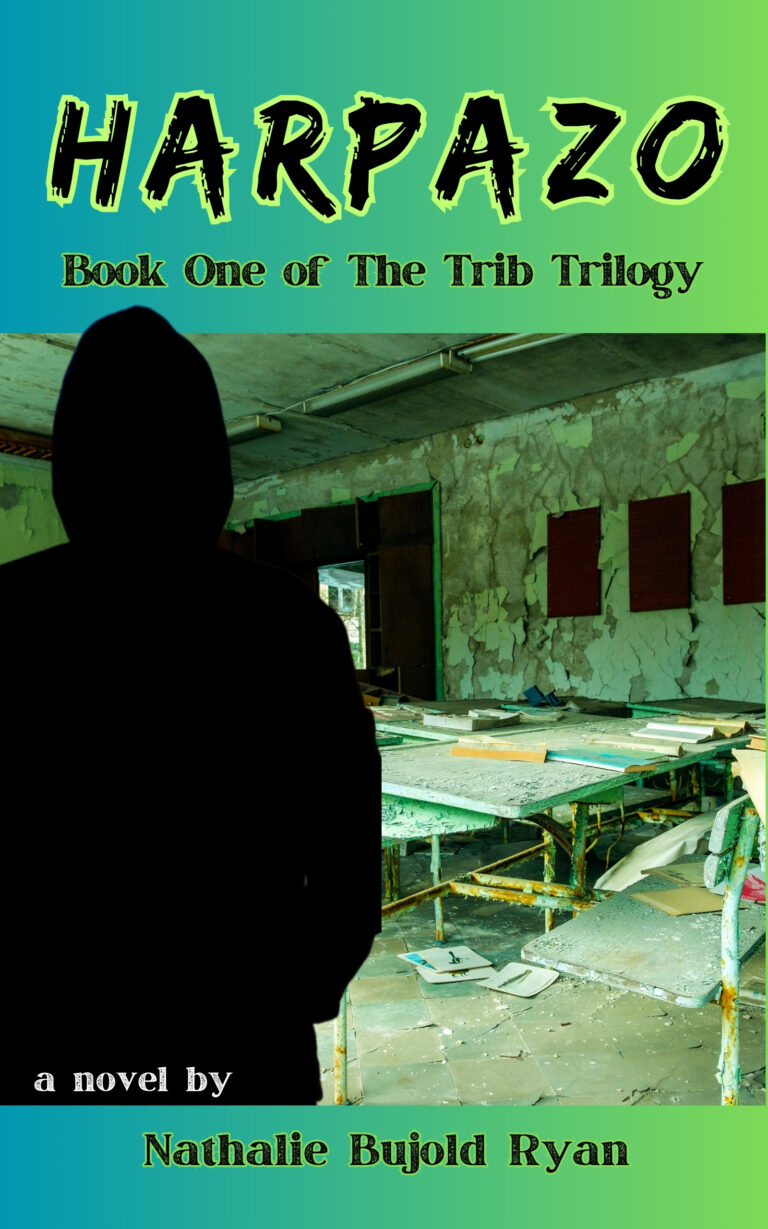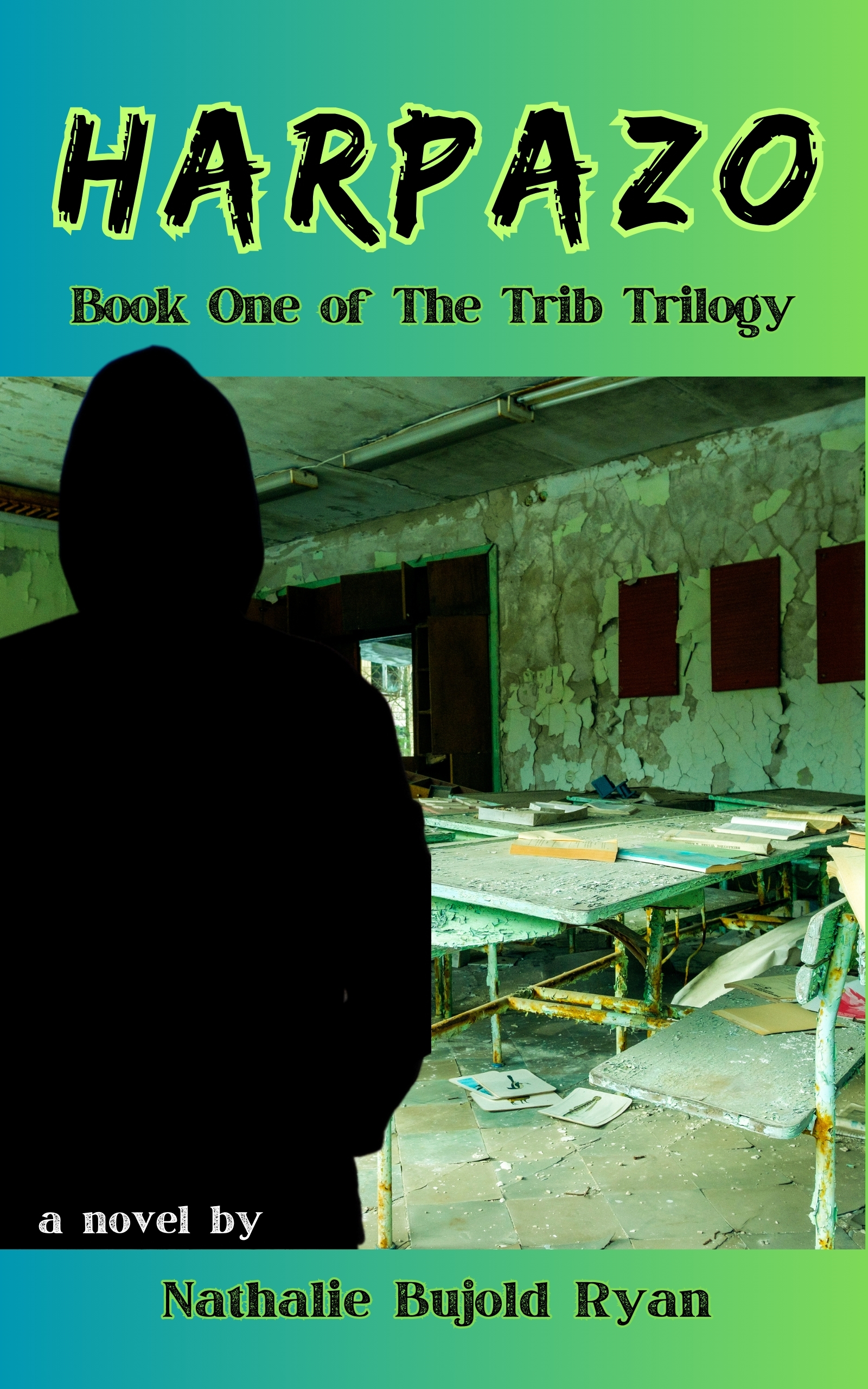Proselytizing literature is always a challenge. Because its message takes precedence over all other considerations, the needs of a good story (sound plotting, good characterization, appropriate pacing, and so on) can get pushed to the side. Nathalie Bujold Ryan’s HARPAZO, the first of her Trib Trilogy, fulfills many of the requirements of a good story but falls short on others.
HARPAZO is a story in which the world is subjected to the cataclysms of Revelation: a “pandemic” kills millions, worsened by war, starvation, and animal attacks; a “meteor shower” wipes several major cities off the map; and one-third of Earth’s vegetation burns in the ensuing fires. Prior to all this, a quarter of Earth’s population disappears, having been “raptured”—many of them during their daily routines. The writing style is fluent, and if the plot meanders somewhat, particularly during the many workaday domestic scenes and political animadversions, the dialogue between the main characters (the kindly Sara, the agnostic, gender-fluid Bryn, and a host of others) is pleasantly naturalistic. But is it good literature?
What does come through quite forcefully in the book is a sense of tolerance. Ryan understands that people stay away from or are left unmoved by religion for all sorts of reasons. Consequently, the story acquires some depth. Bryn’s journey, for example, is a hard one, having been abandoned by drug-addicted parents and then passed from foster family to foster family. They, and several others in the book, learn to appreciate the succor, comfort, and joy that prayer and worship brings to them.
But the book does falter somewhat in its erring appreciation of why people don’t believe. Peter—a “logical man”—has, as it were, a come-to-Jesus moment on realizing the Rapture has occurred, and he bemoans not listening to his devout wife. The grief at her loss would surely be real enough, but it is a tendency on the part of many Christians (and believers of other religions) to assume that if the correctness of their beliefs were revealed to all, then everyone else would instantly convert to that faith—instead of simply doubling down on their own religious beliefs, or indeed refraining from worshipping a deity that seemingly tallies the fall of every sparrow but stands back and watches while world wars break out. Ryan’s protagonists are mostly kind folk with relatable impulses—the sort of people we all know and resemble—but the proselytizing takes some wind out of the book’s sails.
As the first part of a trilogy, HARPAZO ends on a cliff-hanger. Hopefully the next installment will take what narratively works in this first book and leave behind what doesn’t, though this is a promising start.
Nathalie Bujold Ryan’s HARPAZO: Book One of the Trib Trilogy benefits from good dialogue and characterization.
~Craig Jones for IndieReader


